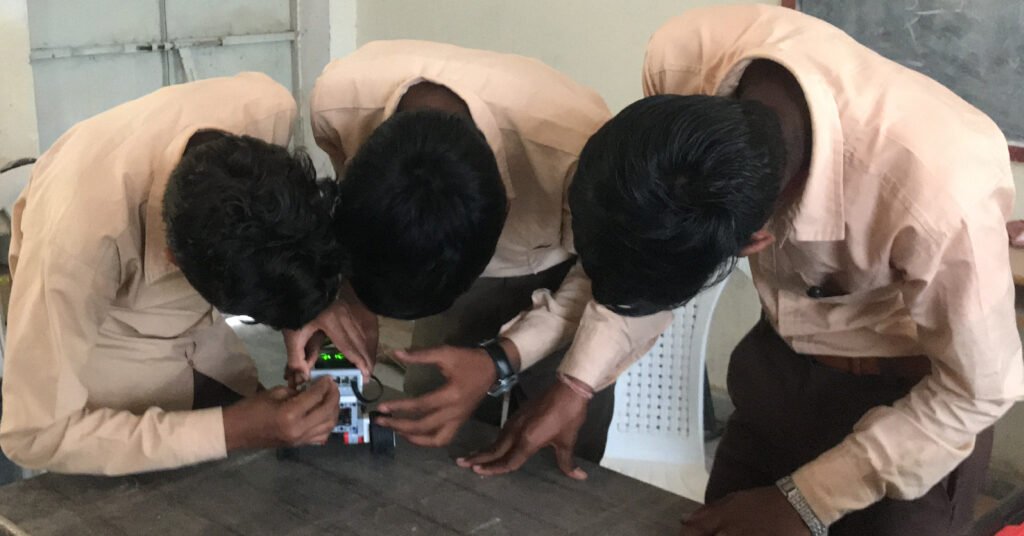STEM (Science, Technology, Engineering, and Mathematics) education serves as a catalyst for developing competent problem solvers who are capable of tackling challenges in a variety of fields. The core principles of STEM education provide the foundation for developing robust problem-solving skills that transcend traditional boundaries.
In an era characterised by technological revolutions, STEM education has become indispensable. It instils in students critical thinking skills, motivating them to inquire, evaluate, and resolve real-world issues. Furthermore, STEM fosters attributes like creativity, teamwork, and adaptability, all of which are vital in a globally interconnected and competitive job market.
Educational Empowerment
STEM projects place a premium on education as the foundation of their efforts. They work relentlessly to improve STEM education in schools, colleges, and institutions. This involves creating an up-to-date curriculum, improving teaching methods, and offering professional development opportunities for instructors. By providing instructors with the most up-to-date information and tools, they may successfully transfer their enthusiasm for STEM subjects to their pupils.
Inculcating Analytical Thinking
Teaching Analytical Thinking in STEM education imparts a culture of analytical thinking. Students are encouraged to approach problems systematically and break them down into manageable components. This analytical mindset forms the basis of effective problem-solving, allowing individuals to systematically analyse problems and develop strategic solutions.
Application of Theoretical Knowledge
Promoting Critical Research The focus of STEM education is the promotion of critical research. Learners are encouraged to ask questions, challenge assumptions and explore innovative approaches. This innate curiosity fosters a problem-solving mindset that seeks comprehensive and efficient solutions to complex challenges rather than just solutions. Application of Theoretical Knowledge STEM Education bridges the gap between theory and application. Practical experience is gained through the practical application of concepts through experiments and projects, allowing students to translate theoretical knowledge into real-world problem-solving scenarios.
Embracing Iterative Problem-Solving
Comprehensive Iterative Problem-Solving STEM-inspired problem solvers understand the iterative nature of problem-solving. They embrace trial and error and see failure not as a setback but as a stepping stone to further development. This iterative approach fosters resilience and adaptability in dealing with complex problems.
Hands-On Learning
STEM programmes aggressively promote hands-on learning. This includes giving students and researchers access to cutting-edge facilities, equipment, and Technology. Individuals gain practical insights into scientific topics and engineering principles via hands-on experimentation. They learn not only from textbooks but also through actively participating in their study materials and activities.
Interdisciplinary Approach STEM education
Promotes an interdisciplinary approach to problem-solving.Students integrate knowledge from a variety of STEM fields to develop a comprehensive understanding of the problem. This interdisciplinary perspective widens the range of solutions available to address challenges.
Mentoring and advising
STEM projects frequently match students and prospective researchers with experienced mentors. These mentors provide advice, share their knowledge, and provide essential insights. Mentorship programmes develop creativity and provide a supportive environment for aspiring innovators. This not only recognises accomplishments but also gives a venue for innovators to get feedback, enhance their concepts, and connect with possible partners and investors.
Technological Integration
Integrating Technology Integrating Technology into his STEM education provides an individual with the skills to utilise technological advances in problem-solving. Knowledge of coding, data analysis, and the use of technical tools improves problem-solving skills and enables innovative and efficient solutions.
Collaborative Problem-Solving
Problem-solving through collaboration Collaboration is the cornerstone of his STEM education. Students participate in team-based projects and learn how to collaborate effectively. This fosters an environment where a variety of ideas come together and fosters a collaborative problem-solving approach from a variety of perspectives.
Cultivating Resilience and Innovation
Promoting Resilience and Innovation STEM education strengthens the resilience of problem solvers. Encountering and overcoming challenges fosters innovative thinking. Individuals learn to adapt, innovate, and create unconventional solutions, expanding their problem-solving repertoire.
Fundamentally, STEM education serves as a powerful catalyst for developing problem-solving skills. By emphasising a multifaceted approach, critical thinking, technology integration, and a collaborative spirit, we develop individuals into skilled problem solvers prepared to tackle the complex challenges of today and tomorrow.




